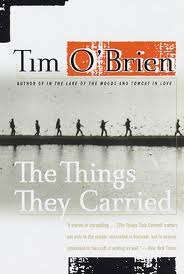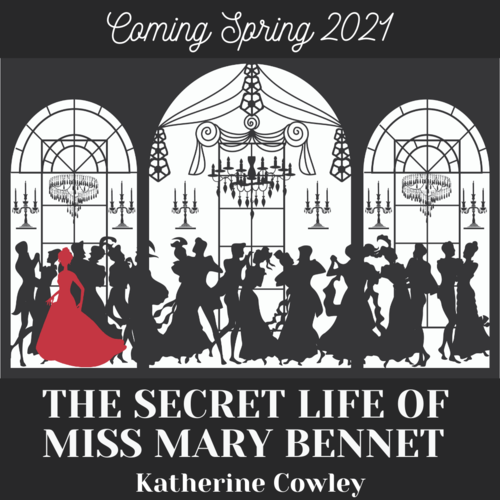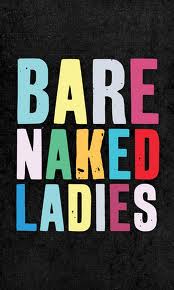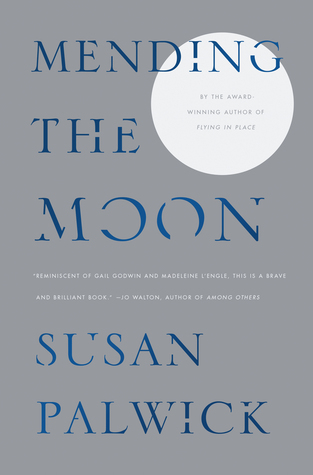An Open Letter to the NSA regarding PRISM, from a Writer
Dear NSA,
News reports say that you are only investigating foreigners with your PRISM program. Yet if that was the truth, you would be losing an amazing surveillance opportunity. I’m sure that in the coming weeks or years, the way in which you are using PRISM to track Americans will become clear. Chances are that Snowden will leak another terribly designed PowerPoint to one of his favorite newspapers.
Before that happens, I’d like to come clean. I’m sure you’re concerned about my 2013/3/19 Google and YouTube searches on electrical explosions and arc flashes. It is true that I watched dozens of videos of electrical explosions, some of them several times. If you follow my Pinterest account (are you one of my 390 followers?) you know that I even pinned some of these incriminating videos. Let me assure you, I have a particularly reasonable, non-harmful to National Security, even justifiable explanation for my behavior.
I am a writer.
I write personal essays and fictional short stories, and I am currently revising my second novel, a steampunk revolving around the heist of a dozen electrical eels. I once wrote a memoir and I even recently took a stab at writing a short play.
In my quest for writing inspiration and in order to provide accurate details to the reader, I use Google and other PRISM partners to search for things that may be on your “red flag” list. In recent years, I’ve researched unaccompanied minors flying on planes, urban occupations in pre-industrial England, wrist slashing, Victorian spies, how to use a knife in a fight, the difference between the Viennese Waltz and the normal waltz, and electrical explosions. All of these searches were strictly for writing purposes, with no intention of applying my newly learned knowledge to real life.
Trust me, I could not do the Viennese Waltz to save my life.
I know your response. You say, why did you spend hours watching videos of electrical explosions, if they only are mentioned in one sentence of your novel? My answer is that I wanted to make sure I got the imagery just right, and that as everyone knows, too much description slows the forward motion of the plot. (If you need me to add a second sentence of description, I will—though any more than that and you’ll have to discuss it with my future editor.)
Another item on my record that you may be particularly concerned about is my recent search on death by electrocution. I would like to assure you that the character who dies by electrocution was a bad guy, on the run from the law. So it’s a good thing he died that way.
From looking in the background of my Skype video calls, which we all know you’ve recorded, you’ve seen that I own a strange collection of books. In an attempt towards complete transparency, I should let you know that I may happen to own The Communist Manifesto. It was required reading in my 11th grade history class, the teacher gave us each a copy, and I never got rid of it. But I’m a fervent capitalist, if not a very successful one (I’m sure you know all about that failed Etsy shop I started back in 2009). Even though I own a red book, you don’t need to worry about me. As everyone who has seen Indiana Jones knows, Communists and Nazis make the best bad guys. If I ever write a Communist character, he will be a villain and I will give him an evil looking mustache.
I like the government. I don’t want any trouble. I just want to write stories and entertain people. I don’t even have plans to write a young adult dystopian novel that rather directly criticizes the government (though you can see some of my favorite dystopian novels on my Goodreads account). Even if my stories sometimes have nuanced characters and ambiguous endings, I’d like you to know that I really am on your side. After all, an entertained public is a more compliant one.
You may be worried—how do you know that I’m actually a writer, since I don’t yet have any published novels? Don’t worry: I’m working on that. And if waiting on agents and editors starts to bother you, let me know and I’ll self-publish on Amazon.
Feel free to use my steadily growing file of Google searches and Facebook statuses as you will. My only request is that if I ever become a famous author, please don’t publish any of my unfinished manuscripts. Because of your backup servers, I will never truly be able to delete them, and I would hate to have an unfinished sentence, story, or idea scrutinized and analyzed by high school English classes (though if you personally want to analyze my unfinished thoughts, I publicly give you permission do so).
With my deepest regards,
Katherine Cowley (A Writer)
10 Keys to Writing Dialogue in Fiction (and 2 Dialogue Exercises)
 Original photo by Dimitris Papazimouris, Creative Commons license
Original photo by Dimitris Papazimouris, Creative Commons license
Key 1: Dialogue is an Expression of Character
Dialogue is the impression of how people speak in real life, but actually much more interesting, with more forward motion. Dialogue is one of the core elements of storytelling, and it needs to be used well.
Image Credit: Beppie K, Creative Commons license
Dialogue is an expression of character, background, education, locality, and circumstance. Listen to how people talk and you’ll see that who they are and the situation they find themselves in will influence what they say and how they say it.
Key 2: Prune Real Conversations to Create Realistic Dialogue
Most writing manuals agree that while you should listen to people and imitate speech patterns, you shouldn’t use verbatim conversation. Writer Aaron Elkins gives an example of an actual conversation he recorded:
“You know how, how…but..some mornings the minute you walk in the door—”
“Every morning.”
“Yes, that’s how these, the way they, the way they…”
“No, it’s not. It’s not the, the—“
“Yes, it is, it is. Because if you, unless you—“
“No, uh-uh, absolutely not.”
While accurate to real life, that would be terrible dialogue for fiction.
If you’re not supposed to use actual conversation, how do you write realistic dialogue?
Aaron Elkins explains: “Realistic dialogue attempts to capture the flavor of real speech, but it does it selectively. Word repetitions, hesitations, stammers, and dead ends have to be ruthlessly pruned. So do many of the polite conventions.” (page 136 — see end of post for sources and further reading)
William Noble makes the same point, giving an example of how people actually speak, and what good dialogue looks like. (see page 259)
Image Credit: michelle thompson, Creative Commons License
How people actually speak:
“Where do you live?”
“230 State Street.”
Good dialogue:
“You live around here?”
“If you want to call it living.”
Key 3: Use Dialogue Attribution (also known as Tags)
One of the key decisions you have to make when writing dialogue is how to attribute it to your characters. A “tag” is the noun (or pronoun) and verb you use next to a quotation. When it comes to writing, there’s actually a lot of debate on how you use tags. Having read the arguments, to me it seems that it comes down to the style you want to write in and the impact that style will have on the reader.
Aaron Elkins explains that there are “three camps” for approaches to dialogue.
Photo Credit: Al_HikesAZ, Creative Commons license
Camp 1: He said/she said. Don’t use any adverbs or fancy verbs.
“Wonder where his mummy is?” said Harry, frowning.
“Given her the slip by the looks of it,” said Ron.
“Why, though?” said Hermoine.
—Harry Potter and the Half-Blood Prince, J.K. Rowling
Camp 2: Vivid verbs. Be expressive!
Sample verbs: Snorted, sighed, chuckled, gasped, exclaimed, rasped, hissed, etc.
I couldn’t actually find a book on my bookshelf that used just vivid verbs. Apparently they’re out there, and I’m just reading the wrong genres.
Camp 3: Some variety, but try not to draw too much attention to it.
Elkins says this is his approach, and that he tries not to use an unusual verb like “whispered” more than once per chapter.
“Barnabus Wren,” I said impatiently, “why do you shake so? Have you seen a ghost?”
“No,” he confessed, “but all the talk is that you have, Keturah.”
—Keturah and Lord Death, Martine Leavitt
Key 4: Omit Attributions When You Can
If it’s a dialogue between two people and it’s clear who is speaking, you can get away with giving attributions every five or six lines.
Screenshot from Pride & Prejudice (2005)
“It is your turn to say something now, Mr. Darcy. I talked about the dance, and you ought to make some sort of remark on the size of the room, or the number of couples.”
He smiled, and assured her that whatever she wished him to say should be said.
“Very well. That reply will do for the present. Perhaps by and by I may observe that private balls are much pleasanter than public ones. But now we may be silent.”
“Do you talk by rule, then, while you are dancing?”
“Sometimes. One must speak a little, you know. It would look odd to be entirely silent for half an hour together; and yet for the advantage of some, conversation ought to be so arranged, as that they may have the trouble of saying as little as possible.”
“Are you consulting your own feelings in the present case, or do you imagine that you are gratifying mine?”
“Both,” replied Elizabeth archly; “for I have always seen a great similarity in the turn of our minds. We are each of an unsocial, taciturn disposition, unwilling to speak, unless we expect to say something that will amaze the whole room, and be handed down to posterity with all the eclat of a proverb.”
“This is no very striking resemblance of your own character, I am sure,” said he. “How near it may be to mine, I cannot pretend to say. You think it a faithful portrait undoubtedly.”
“I must not decide on my own performance.”
—Pride and Prejudice, Jane Austen
Key 5: Mix in Action or Thought
Image Credit: Vyacheslav Bondaruk, Creative Commons License
One of the most powerful dialogue tools is to include actions and characters thoughts, mixed in with the dialogue. This can actually be used as a replacement for dialogue attribution. Or it can be used to add a “beat”: when a person is speaking, sometimes you need a pause between parts of what she is saying in order to add emphasis or show a passage of time, and an action beat can be a perfect way to do that.
“Let’s go to the bow.” I tugged on Elle’s sleeve.
She made a face. “I said I’d meet the others from lunch by the pool.”
I hesitated, darting my eyes between her and the receding deck.
“You go.” Elle gave me a gentle push. “Just be sure to meet us for dinner at seven, okay?”
—A Change of Plans, Donna K. Weaver
This example uses a mixture of tags and action:
“Does that server look familiar?” Marasi asked, turning and watching him go.
“He must have served us last time we were here,” Lord Harms said.
“But I wasn’t with you last—”
“Lord Harms,” Waxillium jumped in, “has anything been heard of your relative? The one who was kidnapped by the Vanishers?”
“No,” he said, taking a sip of his wine. “Ruin those thieves. This kind of thing is absolutely unacceptable. They should confine such behavior to the Roughs!”
—The Alloy of Law, Brandon Sanderson
Key 6: Limit Your Use of Adverbs in Dialogue Tags
Most writing experts agree that you should use adverbs in dialogue tags as rarely as possible, because it distracts from what the speaker is saying and it can often be more useful to provide an actual action the speaker performs (“Ryan flinched”) than give a modifier about how they’re saying something (“Ryan said flinchingly”). (see Chiarella, pages 141-2)
Of course, every single book I looked at for examples used adverbs in the attributions, but seemed to do so very selectively. Here’s an example of good adverb usage:
Again there was some silence as Mitchell Sanders looked out on the river. The dark was coming on hard now, and off to the west I could see the mountains rising in silhouette, all the mysteries and unknowns.
“This next part,” Sanders said quietly, “you won’t believe.”
—The Things They Carried, Tim O’Brien
The key is asking yourself, can someone actually verbally say something in this manner and is this the very best way to say it? If the answer is yes, use an adverb. If the answer is no, change it to an action or a description. For example, “he said quietly” is physically possible to do, and it’s a useful adverb. But as Tom Ciarella points out, “she said quaintly” is not truly possible to do—she might be a quaint person or dressed in a quaint way or be looking at a quaint portrait while saying something, but there’s no real way to say something quaintly.
Key 7: Interject Silence or a Change of Subject
Sometimes instead of coming up with a direct verbal reaction from your character it’s better to use silence, or have your character change the subject. Tristi Pinkston writes that “Sometimes the absence of dialogue says more than dialogue itself.”
Image Credit: Francesco, Creative Commons License
Pinkston gives a nice example of revealing things about a character through what she chooses not to say and deflecting a question:
“What happened to Greg?” I asked.
Viv stepped over to the window and pulled back the curtain, staring down to the street below. I wondered if I should break the silence, but she finally said, “Let’s go out to dinner. I want a good steak and some mashed potatoes.”
–Tristi Pinkston
Note: I write more about pauses in dialogue in my post 10 Keys to Writing Story Beats in Novels.
Key 8: Test your Dialogue
As a cardinal rule, you should always read your dialogue aloud. It might look good on paper, but before you speak it, you’ll have no idea what it actually sounds like.
Image Credit: Paul Graham Raven, Creative Commons License
It’s also a good idea to look at the dialogue of an individual character across the entire novel, to make sure it’s consistent. It takes time, but it’s worth it.
Key 9: Look for Inspiration from your Favorite Authors
The Romans used imitation as a way for students to learn oration. It’s a great way to learn writing techniques as well. Open a book on your shelf to a random page, and analyze how the author uses dialogue. It may also be useful to analyze dialog in the genre you’re writing in.
Image Credit: QQ Li, Creative Commons license
Key 10: Consider what Each Line of Dialogue Adds to the Story
William Noble gives five things he thinks good dialogue should do:
- “characterize the speaker;
- establish the setting;
- build conflict;
- foreshadow;
- explain” (page 261)
Each line you include should have a very clear purpose. But you can’t just force dialogue on your characters to meet your own ends as an author–it has to be dialogue that works for your characters and their desires. One of the most useful pieces of advice for writing dialogue comes from Kurt Vonnegut: “Every character should want something, even if it is only a glass of water.” When your characters are talking, as a writer you should be very clear on what each character wants, even if they’re not openly sharing that with each other.
Whether it’s adding to characterization, to plot, or to foreshadowing, every line of dialogue should forward the story. Make it count!
Image Credit: Daniel Pozo, Creative Commons License
Dialogue Writing Exercises
Image Credit: Oliver Hammond, Creative Commons license
Exercise 1:
- Choose 2 characters. Have one of them start a dialogue with a line that implies some conflict, such as “I told you to buy cheese…” (You can even do the exercise with that exact line.) Now do a rush write. As fast as you can, write 6 to 10 lines of dialogue between the two characters. The catch? You can only write dialogue – no attributions, actions, etc.—just the words they are saying.
- Consider what it is each character wants, their background, their distinguishing characteristics, and how these things will impact what they say and how they say it. Revise your dialogue (still just the words they are saying) to better reflect your characters.
- Add tags or dialogue attributions. He said/she said, or fancier verbs if you choose. But don’t overdo it. Instead of tags you can add an action or thought. Or you can create a beat in the midst of a statement by adding an action.
- Look at the dialogue you’ve written, and make sure every word counts, that everything the characters say, and everything else that you’ve added in, really contribute. Cut anything that doesn’t.
- Compare your original dialogue with your final version.
Exercise 2:
- Write a sort dialogue between three characters. It can be about anything you want and should be at least 6 lines long. The only verb you can use is “said.”
- Rewrite the dialogue using only vivid verbs.
- Rewrite the dialogue using no normal attribution tags. Instead, let us know who is talking by including actions and descriptions of characters.
- Now rewrite your dialogue using whatever combination of tags and action you think will make it work best.
Sources and Additional Resources on Writing Dialogue
- Chiarella, Tom. Writing Dialogue. Cincinnati: Story Press, 1998. Print.
- Elkins, Aaron. “How to Write Convincing Dialogue.” Writing Mysteries: A Handbook by the Mystery Writers of America. Ed. Sue Grafton. Cincinnati: Writer’s Digest Books, 2002. 129-138. Print.
- Noble, William. Three Rules for Writing a Novel: A Guide to Story Development. Forest Dale: Paul S. Eriksson, 1997. Print.
- Pinkston, Tristi. The Write It Write Series: Dialogue Dynamics. Tristi Pinkston, 2012. Kindle Ebook.
- Trollope, Anthony. “Chapter Twelve: On Novels and the Art of Writing Them.” An Autobiography. Web.
Check out my new novel!
If you enjoyed this post, please consider learning about my new spy novel, The Secret Life of Miss Mary Bennet, coming in April 2021 from Tule Publishing.
Read More
(The above post includes more on dialogue, including the Three Beat Rule of Dialogue.)
Writing Inspirations: “In Which Eve Names Everything Else”
My mini-play/story, “In Which Eve Names Everything Else,” recently won 2nd place in the 2013 Mormon Lit Blitz contest. (If you’re interested, you can also read the discussion of my play.)
The stories that I write are often inspired by a strange combination of things that I’ve been interacting with. Sometimes I have no idea what those inspirations are; other times it’s quite clear. For this story, I can trace four direct influences:
1. A Barenaked Ladies song
The day before writing the story I was listening to “A Word for That” on Toddler Radio. Here’s the opening lyrics of the song:
There’s a word for that
But I don’t seem to know it
Sometimes I grow a mustache
Just so I don’t have to show it
The word for that
That someone somewhere chose
For that little dented skin
Between my upper lip and nose
There’s a word for that
What does it start with, the word for that?
I’d sound so smart if I only knew
The word for that, perhaps you do
The word you’re looking for is philtrum
If you’ve short story, it’s pretty clear how the song impacted my ideas.
2. The History of Science
 Over the past few years I’ve been reading lots of articles or books on the history of science. And in one of those texts (or perhaps several of them) it mentioned that alchemists used new words to obscure things, make them more mystical and less understandable, but in the “new science” of the Enlightenment, people like Bacon used new words to make things clearer.
Over the past few years I’ve been reading lots of articles or books on the history of science. And in one of those texts (or perhaps several of them) it mentioned that alchemists used new words to obscure things, make them more mystical and less understandable, but in the “new science” of the Enlightenment, people like Bacon used new words to make things clearer.
For several months I had been thinking about how you need a word for something if it becomes an object of study in and of itself.
3. A Book on Writing Scenes
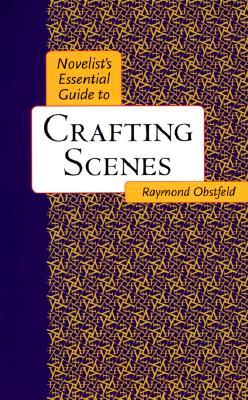 Just a few days before writing the play, I finished reading an excellent book, The Novelist’s Essential Guide to Crafting Scenes. I honestly had never thought about the scene as a unit before reading this book, and thinking about what a scene has to do really influenced the style in which I wrote the mini-scenes in my play (one of which is only two lines long, yet I feel is a complete scene).
Just a few days before writing the play, I finished reading an excellent book, The Novelist’s Essential Guide to Crafting Scenes. I honestly had never thought about the scene as a unit before reading this book, and thinking about what a scene has to do really influenced the style in which I wrote the mini-scenes in my play (one of which is only two lines long, yet I feel is a complete scene).
4. A college class from my undergrad years
 Back in 2007 I took a Humanities capstone course, “The Eden Theme in Western Culture.” We read all sorts of Adam and Eve stories, and looked at how the Eden them influenced exploration, gardening, religion, and even film. This ideas sunk into me, and have forever changed the way I see Adam and Eve.
Back in 2007 I took a Humanities capstone course, “The Eden Theme in Western Culture.” We read all sorts of Adam and Eve stories, and looked at how the Eden them influenced exploration, gardening, religion, and even film. This ideas sunk into me, and have forever changed the way I see Adam and Eve.
After my story was published, a reader pointed out that Mark Twain also wrote a humorous story about Adam and Eve naming things. I’d never heard of it before writing my play, but having read it, I can say there are some similarities, though Twain’s is much longer and much less reverent. (Twain actually wrote a whole set of Adam and Eve works. The one I just read is called “Extracts from Adam’s Diary.” I still need to read “Eve’s Diary,” which looks like it has amazing illustrations.)
On Writing the Play
I have never written the play before. I composed the first half, basically word for word, while I was in the shower. It was a long shower. I came out and transcribed it in between feeding kids, and wrote the rest that day.
A trusted reader gave me back a short set of revision notes. I submitted it to the 2013 Mormon Lit Blitz contest. It was chosen as one of 11 finalists from about 200 entries. The contest editors gave me a few minor revision notes. I revised. And then it was published.
It was one of those unusual circumstances where I felt like the story was largely given to me, where not very much changed from the first draft to the final version. You can call it a muse if you want, though I don’t believe in Greek goddesses. I’ll call it a blessing.
Image Credits:
- Painting of Sir Francis Bacon, by Frans Porbous the Younger, Wikimedia Commons
- “Paradise” by Lucas Cranach the Elder, Wikimedia Commons
Point of View and Imaginative Empathy
Last Friday I went to a writing workshop by award winning author Susan Palwick, whose new book Mending the Moon was just released.
Susan Palwick gave a workshop on point of view. We commonly think about point of view as 1st, 2nd, or 3rd–who is telling the story? A great analogy for this is camera angle, which was a major focus of a great book on point of view, Orson Scott Card’s Characters and Viewpoint.
After Palwick’s workshop I realized that while that approach is useful, it’s just one small way that authors can use point of view in writing. For example, Palwick talked about “cultural point of view,” the way in which one’s culture, family, and group identifications are going to impact how he/she perceives a certain situation.
Point of view, suddenly, becomes not just a choice on whether we want to be in a character’s head or not. Choosing a point of view, choosing what our characters and our readers see and experience, is suddenly a social responsibility.
During the workshop, Palwick stated that “the job of fiction is to create imaginative empathy.” As a reader, when I engage with a point of view, I have a possibility of recognizing their joys and sorrows, then understanding them, and finally, through living with them, empathizing them. The imagination becomes a powerful tool then in creating or tearing down prejudices, displaying and perhaps advocating different lifestyles, and allowing us to reconsider our own places in the world.
Character Recipe: Kathy Soup
I went to a writing event last night and author Cindy R. Williams taught about Character Recipes, an approach she uses to get to know her characters. Basically, you create a recipe for your character that includes things like physical characteristics, personality traits, flaws, fears, and dreams.
Instead of doing it on a character, we practiced it by doing it on ourselves. Other people wrote recipes that were much cleverer than mine, but mine still paints a fairly decent picture of who I am today. So here is my character recipe:
Kathy Soup
- 1 husband in graduate school and 2 tiny girls
- 1 pair of hazel eyes
- 3 Tablespoons of sleep deprivation
- 1 pair of holey jeans, best obtained by crawling on the floor
- Broth of dreams (prepared in advance by boiling writing, piano, yarn, film, and teaching; strain out any large chunks)
- 10 unpolished fingernails
- 1 classroom filled with freshmen writing students
- 500 words of writing a day
- Heaping scoop of perfectionism
Directions: Find a house with two little girls and a male graduate student. Watch them carefully while mincing sleep deprivation and holey jeans; sauté in hot oil. Add a broth of dreams, and with unpolished fingers, stir in a classroom of writing students and 500 words of personal writing a day. Season with a bit too much perfectionism and then be self-critical about it and everything else. Simmer for several uninterrupted hours. As this time will likely be unavailable, consider boiling rapidly for 20 minutes, hoping that will be long enough for the flavors to combine, and stirring continuously to avoid burning. Serve dinner 30 minutes late. But at least there is food on the table and the kids are still alive.
And now I think I need to do this exercise for some of my characters.
Photo Credit: essgee51, Creative Commons license
New Page: Metaphors about the Writing Process
I’ve added a new page to my site with quotes and metaphors about the writing process. Okay, there’s a fair number of similes too, but similes are a type of metaphor.
The first semester I taught a college writing class, I got to the day I was supposed to teach about writing process and thought, I don’t know how to teach this.
A visual metaphor for how I feel when I don’t know how to teach something.
Other parts of argumentation feel much more concrete and learnable: for example, you can clearly look at the examples a writer used to support their argument and analyze why they did or did not work.
Yet you can’t look at the final piece of writing and see the processes or strategies it took to get there. You may be able to tell if it was rushed or hurried, or sloppy and undeveloped thinking. But if it’s good writing, the process is basically invisible.
In regards to writing process, there are principles I believe firmly hold true: write everyday, if you’re going to procrastinate then do so wisely, research early and deeply, and turn off your internal editor while you’re writing a first draft.
Now you can say those things about writing, but how do you teach them, remember them, ingrain them? To me, that’s where metaphors about writing really come in handy. For example, if I think about writing as exercise, it makes sense that I should be writing everyday: I wouldn’t compete in a 10K without running regularly in advance.
So head on over and check out my page about writing metaphors. It’s a work in progress that will continue to evolve.
Image Credit: Sybren A. Stüvel, Creative Commons license







